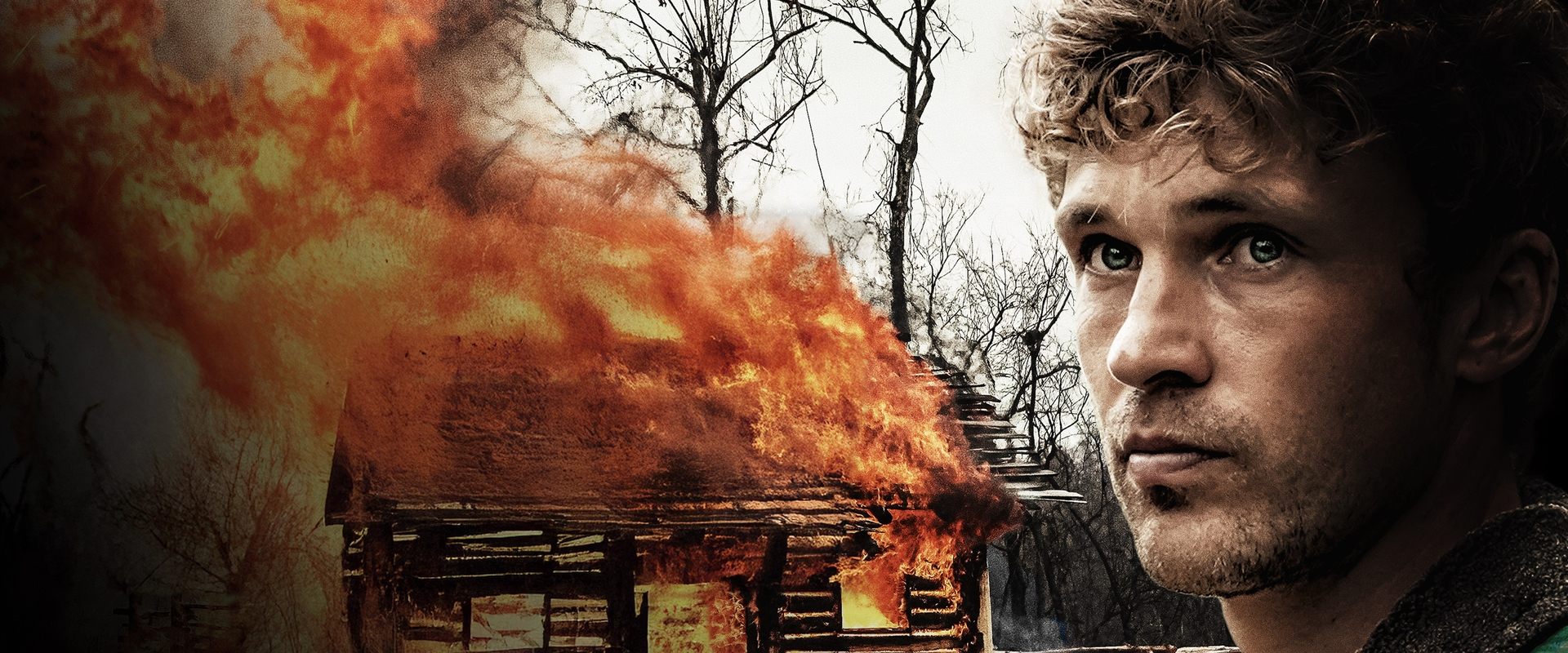If ever there was a “fever dream” of the American biopic, Derek Estlin Purvis’ The Ballad of Davy Crockett is it. But don’t expect psychotropic colors or a narrative that flares and fizzes. No, this is the sort of celluloid nightmare where you wander through soggy wilderness for ninety minutes without a compass—except, perhaps, for the one lost somewhere on the cutting-room floor.
In a just world, this movie would win an Oscar for Most Incoherent—though by the end, you suspect even Academy voters would get lost before finding the stage. William Moseley’s Davy Crockett is less American legend than indestructible cartoon: he bounces back from horse accidents, logs through the leg (!), and even a bout of “Matrix” bullet-time, all while maintaining a single stunned expression. The film’s sole achievement is to make you believe that frontiersmen really did have superpowers, if only to withstand the existential peril of inhabiting this muddled script.
The plot—if you can call it that—revolves around Crockett’s attempts to reconcile familial heartbreak while traversing a frontier where logic and continuity go to die. In one memorable bit of wilderness wisdom, he sets a fire in the pouring rain: even Prometheus would have scoffed. And the heroics don’t stop there. Having rescued his wife from a burning cabin, our invincible Davy promptly dumps her in a field (no food, no shelter, not even a glass of rainwater for her trouble). If this is rugged individualism, it’s one step away from cartoonish negligence.
There are moments—if you’re generous—when you sense the film wants to evoke the heartstrings of survival stories like The Revenant or Spielberg’s bombast in Saving Private Ryan, but it only achieves a kind of unintentional farce. The sons, William and John, are left to “fend for themselves,” but any emotional resonance is drowned out by lines so wooden they could serve as kindling for Davy’s miraculous rain-fires.
Director Purvis seems to have aimed for an epic but wound up with a broken funhouse mirror reflecting bits of every other movie except, tragically, a real Davy Crockett adventure. The camera work is a lyric poem to restlessness—by which I mean the lens spasms across the screen like a caffeinated jackrabbit dodging arrows. Tempting as it is to call it “artful,” it’s closer to nausea-inducing. If the jerkiness was meant to create a sense of frontier tension, it succeeds mostly in making you wish for a stationary shot and a merciful blackout.
But the most head-slapping injury comes courtesy of the screenplay, a patchwork of dialogue so clunky you start to take it as an elaborate deadpan joke. Characters speak in riddles or cliché, as if they’ve just stumbled out of a community theater after one rehearsal too many. There are hints—so faint you need a divining rod—that somewhere deep under the detritus, a theme of family love and perseverance struggles to emerge. But then the next line arrives, and you’re snapped back to reality, or perhaps to another, even less hospitable plane.
Yes, the film is in a genre that has produced its share of howlers, but even compared to Disney’s own wholesome adventures, this is a nadir. If the Mouse House once honored Davy with feel-good mythology, here we get a jumble of invulnerable idiocy, accidental heroism, and head-slappingly poor decisions—a ballad for the ages in the key of “Why are we watching this?”
Don’t come to The Ballad of Davy Crockett seeking suspense, emotion, or even the rough pleasure of a classic tall tale. Come only if you want to witness what happens when everyone involved, from writer to director to performer, seems determined to outwit both logic and taste. It is, above all things, an anti-ballad: a cautionary epic about what happens when moviemaking leaps off a cliff and forgets to pack the parachute.
For me, watching this travesty wasn’t cinema—it was competitive facepalming. To call it an “unforgivable disservice” to an American folk hero is to pay it too high a compliment. It’s a warning shot for future filmmakers: if you’re looking to spin legend into celluloid, maybe don’t do it blindfolded, upside down, and with your narrative sense bricked into a log cabin on fire—preferably in the rain.


